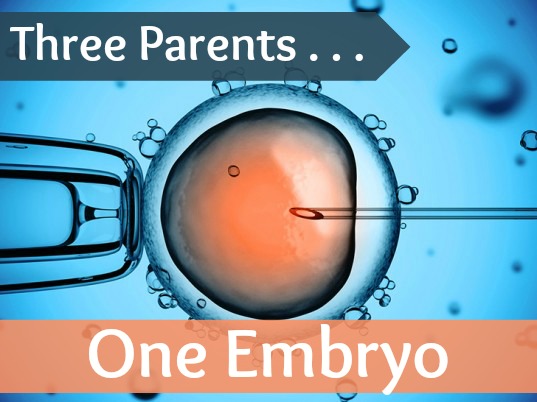If two is company, then certainly three parents are a crowd. That is how some are describing the decision by the British House of Commons that voted to legalize the creation of a baby using the DNA of three parents. The controversial practice is being touted as a way to create children without certain genetic diseases. But much more is going on behind the scenes.
Remember what Dr. Frankenstein said before his fictional experiment? “What could possibly go wrong?” The scientific and ethical issues are significant, but that hasn’t stopped one American researcher from requesting permission from the FDA to conduct trials on similar experiments.
Dr. Peter Saunders, a British opponent of the legislation, said, “These techniques are highly experimental, unproven, known to be unsafe, ineffective, costly, a waste of public money, insufficiently understood, and will require large numbers of efforts to proceed, even for just a few families.” I think that sums up many of the concerns.
As I mentioned, the procedure was initially promoted as a way to create perfect children by preventing disease-causing mutations in their mitochondria. The argument by the British researchers and the American researcher is that a three-parent conception will create in vitro babies that are free of mitochondrial diseases. However, one scientist also wants to use the three-parent technique for the treatment of infertility.
I think we can begin to see where this leads. First, we are creating babies without mitochondrial disease. Then we are using the technique to treat infertility. Along the road we begin to accept the idea of designer babies and even the creation of a super race. We have the technological ability to do some incredible things. Do we have the wisdom and moral foundation to make the right choices?
Just because we can do something doesn’t always mean that we should do it. In the movie Jurassic Park, Ian Malcolm complains to the park’s creator that “your scientists were so preoccupied with whether they could, they didn’t stop to think whether they should.”
We don’t need to rush into a world of three-parent embryos.
 Listen Online
Listen Online Watch Online
Watch Online Find a Station in Your Area
Find a Station in Your Area











 Listen Now
Listen Now Watch Online
Watch Online
